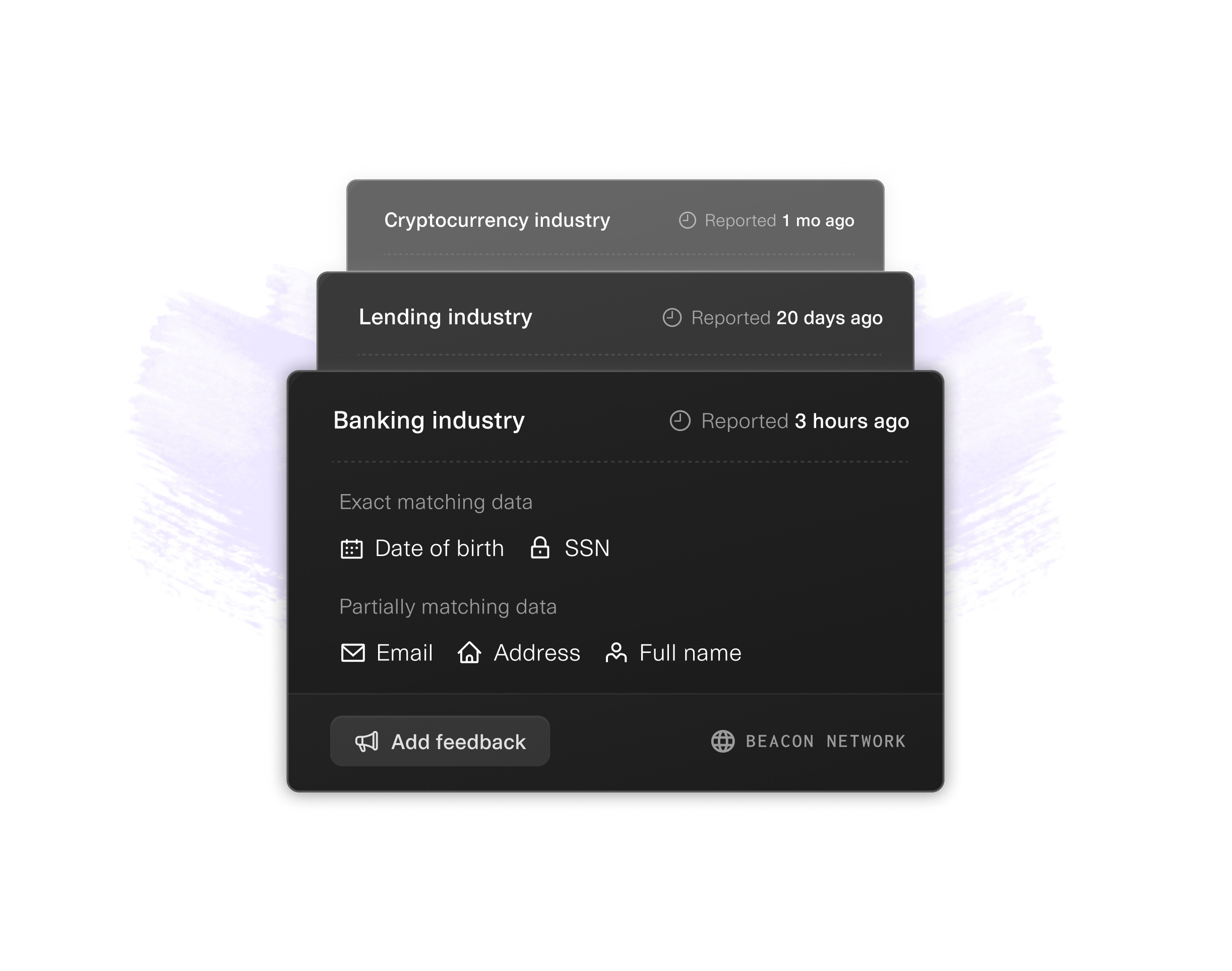Plaid unveils new collaboration network aimed at giving fintechs a way to share fraud intelligence
Want more fintech news in your inbox? Sign up here.
Fintech startup Plaid got its start as a company that connects consumer bank accounts to financial applications, but has since been gradually expanding its offerings to offer more of a full-stack onboarding experience.
And today, Plaid is announcing even more new product releases that moves the company into a whole new direction while also helping to diversify its revenue streams.
At the top of that lies Beacon, which it is describing as a “collaborative anti-fraud network enabling financial institutions and fintech companies to share critical fraud intelligence via API across Plaid.”
Plaid is launching Beacon today with 10 founding members, including Tally, Credit Genie, Veridian Credit Union and Promise Finance. Its argument for the need for such a network is that banks today already have access to shared fraud intelligence networks, but most companies don’t have access to the same types of tools.
“The idea behind Beacon is that the vast majority of fraud that any one fintech sees has been seen by another fintech before,” Alain Meier, former Cognito CEO and current head of identity at Plaid, told TechCrunch in an interview. “So essentially, what that means is that everyone is rebuilding the same anti-fraud mechanisms in order to try to catch what is frequently the exact same fraud, which means there’s a lot of wasted money and there’s a lot of wasted time.”
Beacon represents Plaid’s effort to give fintechs a way to report fraud instances to each other. Participating members of the network will contribute by reporting instances of fraud — including stolen, synthetic and account takeovers — to Plaid. From there, they can then screen new signups or users against the Beacon network to detect if a specific identity has been associated with fraud on other Plaid-powered platforms or already within their own organization. For example, a fintech can share that a particular stolen identity was just used to sign up for one of their accounts. When that same stolen identity is used to sign up for a different fintech, the business is able to “properly look at the transaction, protect the business and the consumers associated with that identity,” Meier said.

Image Credits: Plaid
Beacon is now available to fintechs and financial institutions of all sizes and Plaid’s 8,000+ customers. A business will pay Plaid to become a member of the network.
The goal of the new offering is twofold, according to Meier.
“One, it’s to help the businesses to more efficiently and accurately find fraud that’s going on in their systems and to stop it from having this chain reaction of moving between different fintechs,” he said. “And then, secondarily, we also want to give consumers a mechanism by which they’re able to protect their identities.”
It is also significant, in Plaid’s view, considering that regulators are giving increased scrutiny to fintechs, in an effort to make sure that they’re “adhering to the same levels of security and compliance that the banks have for many years.”
Plaid spent about a year building out the product, which Meier acknowledged was “a very hard product to launch.”
When it comes to mitigating its own risk, Plaid says that it is operating the network with the same goal of securing sensitive information in the same way it works to secure financial account data. Beacon, it says, does not share personal identifiable information back to participating companies, only whether the identity information they are screening has been associated with fraud on other platforms. The company also emphasizes that is not used for decisioning, noting that “what Beacon does is offer customers an additional layer of fraud intelligence that customers can then use to do step up verifications or other security checks.”
The company also last week announced a new feature called Remember Me, which allows a user who has completed verification of their identity to opt in and have their identity remembered the next time they are asked for verification.
In January of 2022, it acquired Cognito, which offered identity verification and help with issues like know your customer (KYC) rules, and anti-money laundering requirements, for $250 million. The company then moved into offerings related to what it called “onboarding optimization” and risk and fraud mitigation.
Plaid also made a push on the payments side, with products such as Transfer and Signal, which allow the movement of money and the evaluation of the risk of moving money, respectively. (It now claims to analyze more than $2 billion in transactions each month.)
“We’ve had really great success with having very high attach rates for our new products so we’re feeling good about our multi-product strategy right now,” said Meier.
Got a news tip or inside information about a topic we covered? We’d love to hear from you. You can reach me at maryann@techcrunch.com. Or you can drop us a note at tips@techcrunch.com. Happy to respect anonymity requests.

